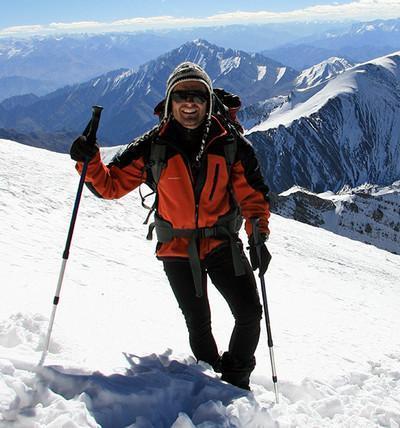Skiing is a hugely popular winter sport, enjoyed by millions of people around the world. However, the bad side of skiing is that the sport has been dogged by allegations of drug doping for many years. Drug doping is the use of banned substances in an attempt to improve sporting performance. Skiing is a highly competitive sport, and some athletes will go to extreme lengths to gain an advantage over their opponents. Athlete drug testing is now commonplace in the sport, and any athlete who is found to have used banned substances is subject to strict penalties. After reading this article, don't forget to check our ski gear sales, best models of powder skis, snow equipment discount and collection of other useful ski stuff.
Ambien, Xanax and Other Benzos and How They Affect a Skier
Have you ever wondered why some people seem to ski better than others? It may have something to do with the fact that they're on drugs. Ambien, Xanax and other benzos are commonly used by competitive skiers to help them relax and focus on their runs.
While these drugs may help some skiers perform better, they can also be extremely dangerous and impair their actions. Benzos can cause drowsiness, impaired coordination and even blackouts. If you're planning on skiing this winter, be sure to stay off the slopes if you're under the influence of any of these drugs.
What Are the Long-Term Effects of Steroids on Skiing and Your Actions?
Skiing is a widely enjoyed winter activity, but what are the long-term effects of steroids on those who enjoy the sport? How reckless are you? While there are many benefits to taking steroids, such as increased muscle mass and strength, there are also potential risks.
These risks include liver damage, high blood pressure and heart problems. While more research is needed to fully understand the potential risks of taking steroids, it is important to be aware of the potential dangers before using them.
Despite the efforts of the authorities, drug testing doping remains a problem in skiing, and the sport continues to make headlines for all the wrong reasons.
Skiers and snowboarders are often at a higher risk for injury than other athletes. They can easily fall and get hurt while skiing. For finding skiers that are buried under snow, rescuers use avalanche beacons. As a result of injuries, they may be prescribed drugs like painkillers or antidepressants. While these drugs can help manage pain and improve mood, they can also lead to problems in life like addiction and overdose.
How to Avoid Addiction to Drugs While Skiing?
In recent years, drug addiction has become a serious problem among skiers. While skiing can be a great way to relieve stress and improve your physical fitness, it can also be a dangerous activity if you're not careful. Drug addiction can lead to accidents, injuries, and even death. If you're concerned about becoming addicted to drugs while skiing, there are a few things you can do to help prevent it. First, make sure to ski with a partner or group. This will help you stay safe and make sure you're not skiing alone. Second, avoid skiing in areas where drugs are known to be used. If you see people using drugs, leave the area immediately.

What Are the Most Popular Drugs Used on the Slopes?
It's that time of the year again! Ski season is in full swing, and that means so is après-ski. Whether you like to hit the slopes or just hit the bar after a day of skiing, you're likely to encounter some recreational drug use. But what are the most popular drugs used on the slopes? According to a recent survey, the most popular drugs used on the slopes are alcohol, marijuana and cocaine. Of those surveyed, 85% said they had used alcohol, 60% said they had used marijuana, and 30% said they had used cocaine while on skis.
With a drug and alcohol rehabilitation program, you can learn how to have fun on the slopes without relying on substances. Remember, skiing is about enjoying the beauty of nature and pushing yourself physically, not about getting high.
Summary
Skiing and substance abuse have always been controversial topics. Some people believe that skiing and using drugs go hand in hand, while others believe that skiing is a dangerous sport that should be avoided at all costs. There is no right or wrong answer, but it is important to be informed about both sides of the argument before making a decision. Skiing is often associated with drugs, especially performance-enhancing drugs. While there is a small minority of skiers who do use drugs, the majority of skiers do not. Drug use among skiers is relatively low compared to other snow sports, and most skiers who do use drugs are recreational users looking for an adventure, not competitive athletes. Drug testing changed skiing for the better.
Questions and Answers

What is a drug of choice for skiers?
Most skiers will choose to take drugs that will help them improve their performance on the slopes and the mountain.
These can include drugs that help increase their stamina, such as caffeine, or help them to focus better, such as Adderall.
Some skiers may also choose to take illegal drugs, such as cocaine, in order to get an edge over their competitors and don't follow the policy.
What happens when you mix drugs and skiing?
While some might see drug use and skiing as two completely separate activities, there is a small subset of people who mix the two. For some, taking drugs before skiing can enhance the experience and make the daredevil tricks feel more exhilarating. However, others find that the drugs impair their skiing abilities, putting them at greater risk for injury. Some ski resorts have even begun to crack down on drug use, as it not only endangers the skier but also those around them.
Does skiing mesh with drugs?
Some people believe that skiing and drugs go hand in hand, while others believe that drug use is not condoned in the skiing community. However, the truth is that there is no straight answer to this question. Each individual skier must make their own decision about whether or not to use drugs while skiing. Some skiers may choose to use drugs to enhance their performance, while others may choose to avoid drug use altogether. Whatever the decision, it is important to be informed about the risks and benefits of both skiing and drug use before making a decision.
ABOUT THE AUTHOR
Aleksandra Djurdjevic
Senior Content Creator
Aleksandra Djurdjevic is a senior writer and editor, covering snowboarding, skiing and trends in outdoor winter activities. She has previously worked as ESL teacher for English Tochka. Aleksandra graduated from the Comparative Literature department at the Faculty of Philosophy in Serbia. Aleksandra’s love for the mountains, getting out in the snow on her board, season after season, seeking wild snow adventures across the globe helps her continue to be a top expert at CSG.






